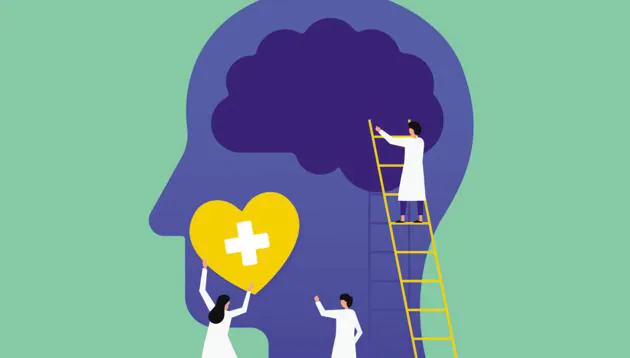Mental health is an integral part of an individual’s overall well-being and should be given adequate attention right from the primary care level. However, situations often arise where individuals in acute care settings concurrently experience physical and mental health issues that require prompt medical attention.
A recent report shows that in the US, almost a third of hospital-associated emergency department visits involve mental health problems, highlighting the need for proper integration of mental health services in acute care settings.
In this article, Anthony Misitano of PAM Health will discuss the importance of integrating mental health services in acute care settings, how it works, and its impact on patients, medical personnel, and mental and physical health outcomes.
Table of Contents
Understanding The Integration Of Mental Health Services In Acute Care Settings
The integration of mental health services in acute care settings means seamless coordination between physical and mental health providers to address the needs of individuals experiencing both illnesses. Mental health professionals, such as psychiatrists, psychologists, social workers, and behavioral health nurses, work collaboratively with medical professionals to provide comprehensive care and treatment for patients with mental health issues.
The integration also involves early identification of mental health issues, especially in patients presenting with physical symptoms such as chest pain, weakness, or abdominal pain. All healthcare providers within the acute care setting, including non-mental health professionals, should be equipped with sufficient knowledge and training to screen patients for potential mental health problems.
Importance Of The Integration Of Mental Health Services In Acute Care Settings
Integrating mental health services in acute care settings benefits patients, medical personnel, and healthcare organizations. For patients, the provision of adequate mental health services within the critical care setting reduces the risk of complications arising from delayed or improper treatment of mental health issues. It also improves the quality of care provided and enhances patient outcomes.
For medical personnel, such integration improves their understanding of physical health’s emotional and psychological dimensions, making them better equipped to provide comprehensive patient care. Integrating mental health services in acute care settings also reduces the stigma associated with mental health issues and promotes a culture of sensitivity and empathy within healthcare facilities.
Impact Of Integration On Physical And Mental Health Outcomes
The integration of mental health services in acute care settings has been linked to numerous positive physical and mental health outcomes. Research has shown that early screening and treatment of mental health issues in acute care settings can help to reduce hospitalization and readmission rates, as well as minimize complications arising from untreated mental health problems.
The provision of adequate mental health services within the acute care setting also promotes faster recovery from physical conditions as patients gain the emotional and psychological strength to cope with their conditions.
Integrating mental health services in acute care settings also reduces the overreliance on pharmacotherapy for mental health issues, as non-pharmacologic approaches such as psychotherapy and counseling become more available to patients.
Challenges To The Integration Of Mental Health Services In Acute Care Settings
Despite its numerous benefits, the integration of mental health services in acute care settings faces significant challenges that must be addressed. One such challenge is the stigma attached to mental health conditions, which limits the willingness of healthcare providers to screen and treat patients with mental illnesses adequately.
There is also the challenge of limited resources, such as inadequate staffing, equipment, and funds, which limit the provision of comprehensive mental health services within acute care settings. Furthermore, there is often limited collaboration and communication between physical and mental health professionals within the acute care setting, leading to fragmented care and reduced patient outcomes.
Final Thoughts
The integration of mental health services in acute care settings is essential to provide comprehensive care to individuals with both mental and physical health issues, Anthony Misitano states. It provides numerous benefits to patients, healthcare providers, and healthcare organizations and promotes positive physical and mental health outcomes.
However, its success is challenged by stigma, limited resources, and a need for more collaboration between mental and physical health providers. Addressing these challenges through proper education, resource allocation, and improved communication will improve the provision of mental health services in acute care settings.
















